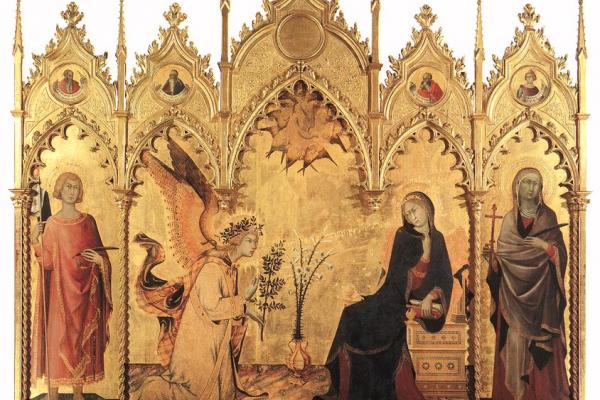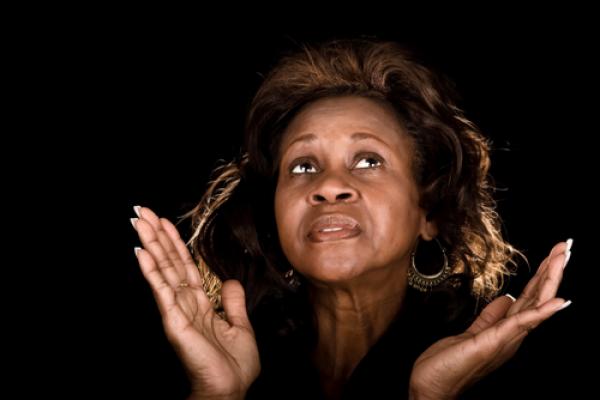More than 600 representatives from the United We Dream network, the largest young adult immigrant movement in the country, have signed on to a new platform calling for an “inclusive pathway to citizenship” that includes DREAMers, their parents, and their communities. The group is pledging to hold both parties accountable and pressure them to create a roadmap toward citizenship for the 11 million undocumented immigrants in the country.
On my desk, next to my laptop, is a can of seltzer water. My grapefruit-flavored, bubbly water sits about four inches away from my left hand as I write. When the can is empty, I might take another from the fridge or fill up a water bottle at the kitchen sink.
Water drives my day, but I rarely think about it. I cook pasta in it. I heat water to make tea. I fill a bucket to mop the floor and a draw a bath with hot water and soak in it. At the moment, my dishwasher is growling away, and I’m waiting to hear the pleasant beep that alerts me that the clothes in the washer downstairs are clean.
I’ve never considered water a women’s issue. Not until this past week, that is. On Friday, the day before World AIDS Day 2012, I had the privilege of attending World Vision’s Strong Women, Strong World luncheon in New York City. Strong Women, Strong World is a new initiative “supporting sustainable change in some of the difficult places in the world to be a girl or a woman.” The focus of the day was water.
The Honorable Melanne Verveer, U.S. Ambassador at-large for Global Women’s Issues, spoke at the event. She celebrated the progress humanitarian organizations such as World Vision have made in the effort to eradicate HIV/AIDS, but reminded us that the number of people living with HIV is at an all-time high. In 2010, HIV/AIDS killed 1.8 million people. Sixty percent of those living with HIV are girls and women, and AIDS is the leading cause of death of women of reproductive age (15-44 years old) globally.
“HIV,” Ambassador Verveer said, “has the face of a woman.”
Delegates from around the world are meeting in Doha, Qatar this month to discuss United Nations’ climate policy. In the past, these meetings were a source of hope for the environmental movement, as governments came together and committed to reducing emissions to collectively try to halt climate change.
Unfortunately, that is no longer the case.
Remember the Kyoto Protocol? Even though the reductions it mandated were nowhere near what’s required for us to reverse the trend we’ve started, we haven’t even come close to achieving those reductions. Oh yeah, and the United States didn’t even sign it.
The Protocol is expiring this year, and the U.N. Framework Commission on Climate Change (the body that created the Protocol — stick with me here) is trying in Doha to extend it for a couple years until they can reach an agreement on how to move forward.
So what’s holding the discussions back?
In the sixth month of Elizabeth’s pregnancy, God sent the angel Gabriel to Nazareth, a town in Galilee, to a virgin pledged to be married to a man named Joseph, a descendant of David. The virgin’s name was Mary.
The beautiful anonymity and soft innocence of a young girl in Nazareth would be stripped by an angelic visitation. Who could ever envision the global veneration soon to commence? This Holy Virgin of Martini's masterpiece cannot be Mary's vision. The gilded, enthroned Mother of God, Blessed Virgin, Theotokos, Panagia. Millenia of adoration blurs the humanity of such a terrifying moment in the life of a child.
The angel went to her and said, “Greetings, you who are highly favored! The Lord is with you.”
Gabriel's praise for her resounds the Earth this Advent Season. Martini paints the words spouting from Gabriel's mouth, invading Mary's space. Her shoulder shrug speaks to Luke's revelations of her humanity. The Gospel record exposes her vulnerability and reluctance to embrace such a startling event.
As President Barack Obama comes off of a substantial second victory, many pundits have pointed to the youth vote and a significant factor in his most recent success. Reports show that 60 percent of young voters cast ballots for Obama, while only 36 percent voted for Gov. Mitt Romney's more conservative policies. While many older voters believe this suggests young voters are unaware or uninterested in the nation's economic concerns, a major platform in the 2012 election, a number of polls suggest the economy is actually a top priority for most young voters. As it happens, though, young people seem to have very different ideas on how best to handle economic instability than their older counterparts.
Yesterday I wrote the first article in this series of posts on why it is that I write. Today I’ll jump ahead to the so-called more “successful” period of my writing work.
I got my first book deal back in 2006, and it came, like everything else, by way of rejection.
I had this great idea to publish a collection of my spoken word poetry in book form in a way that helped worship leaders and preachers incorporate them liturgically into worship services. Little did I know at the time that the word “poetry” is pretty much a four-letter word in publishing, particularly when you narrow your market down to mainline worship leaders to begin with. Top it off with the fact that people kind of have to have a natural sense of how to read the pieces aloud to make them work and … well, it was a stupid idea.
Fortunately for me, the proposal ended up in the hands of an editor who liked my writing style, even if my proposal was crap.
I’ll preface this piece my saying I know I am making some broad generalizations based on gender, and that there are always exceptions to every trend. But despite that, I do think there are some cultural trends that can offer us some useful insight.
Anyone who has been paying attention has noticed that, of those left within the walls of most churches, the majority still hanging in there are women. Some, like the advocates of so-called Masculine Christianity, see this as a crisis. The Christian faith and its symbols are becoming softened, feminized, compromised into being something other than what they were meant to be.
Granted, when you take a faith whose principal authors historically have been men and then place that same faith in the hands of women, some things will inevitably change. Personally, I welcome the exploration of other, feminine expressions of the divine and values such as embodied spirituality that many female Christian leaders value. But aside from these assets, I think that women bring something far more critical to institutional religion.
Without them, it may cease to exist.





